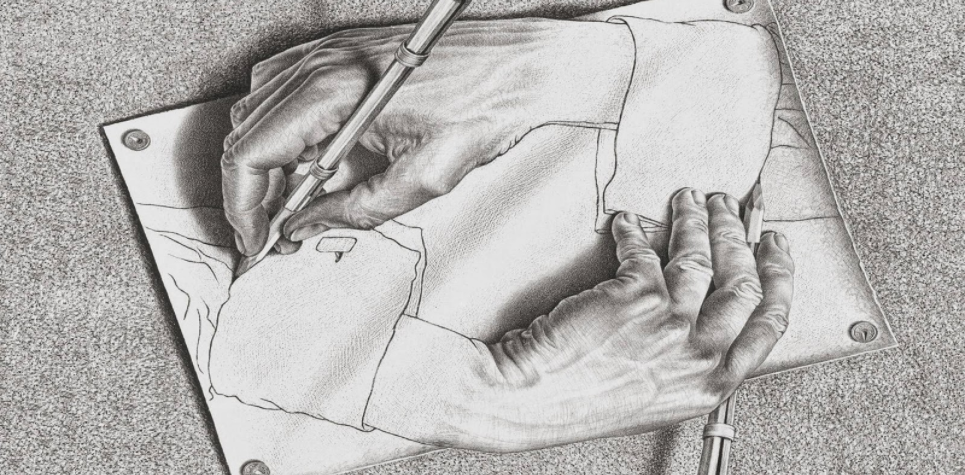
Have you ever seen a work of fiction with characters that left you unsatisfied, or who just didn’t quite work?
If you’re a consumer of fiction then the answer to that questions is probably: yes. But what is it that makes a character unsatisfying to us, and what does it mean about what we value?
If we put aside higher level problems like poor writing/scripting, bad film-making, or shoddy production, and look at the core of the stories and characters we love to hate, we start to see similarities that boil down to one issue: untruth.
But what does untruth mean when talking about fiction? Isn’t all of it untrue? Well, maybe not. Fiction is fabricated by definition, but truth and facts are not the same thing. Fiction is often able to seize on deep truths about the nature of being in a way that fact based discussion does not — you’ve probably experienced this phenomenon yourself while watching a particularly good film or reading a great book.
In the same way, untrue stories ring false to us. They usually have one of three other “uns” in common. Let’s look at them:
Unearned Catharsis
Example: In the movie Doctor Strange, the titular character loses the use of his gifted hands in a car crash, but not his arrogance which stays intact as he effortlessly soaks up eons of ancient mystical knowledge in the time it takes to grow a creepy goatee; he handily saves the world/gets the girl with his roguish charm intact.
This characterization problem is fairly common: we watch a protagonist casually drift past a series of unconvincing threats relatively unscathed only to win the prize at the end. Sometimes this is the point of the movie, usually a horror or a tragedy depicting the unfairness of life. But when the character is cast as the hero, we rebel. The protagonist for whom the possibility of failure never fully manifests itself never has the opportunity to surmount it, and so their victory rings hollow. Our sense of fairness requires that to truly be a hero one must be willing to atone for prior sins, not only by paying lip service, but by facing real consequences willingly. They must be shown capable of caring and growing and they must truly earn and appreciate their triumphs, however humble.
The aptly title Zhang Yimou film Hero (英雄) does a great job of depicting the conviction of heroic courage.
Unrealism
Example: In the movie Superman Returns, Clark Kent and Lex Luthor continue their eternal feud with Lex planting and growing a literal continent made of Kryptonite (the only substance harmful to the Man of Steel, clearly shown to incapacitate him in very small quantities) which Superman is somehow able to LIFT INTO SPACE before succumbing to its poisonous effects.
Again, the sense of fairness that makes us hate unearned catharsis comes into play. Unrealism offends us because it provides escapes for characters that should not be available to them. Humans don’t tolerate unrealism in the real world either: the perception of unfairness has been a driver of social change for all of history. It also drives resentment and jealousy when coupled with feelings of powerlessness. We don’t respect characters who break the rules to win, and if we win that way, we don’t feel like heroes (see: Roman J. Israel Esq.)
Thus, when a story sets up rules for us to follow we go along willingly only until the rules are flouted. This can be done by breaking the rules of the world, often under the false pretense of transcendent willpower (see also: Star Wars: The Force Awakens), or through Deus Ex Machina. We dislike unrealism because power must be EARNED in order for us to respect it. We don’t respect unearned wealth or unearned authority for good reason.
As much as we detest unrealism, we love the realization of potential when truly earned. That’s why Neo’s triumph at the end of The Matrix feels so real. Unrealism can also be effective in tragedy (see the film The Mist for a devastating example).
Unfocus
Example: Crash, the undeserved Best Picture winner of 2004, tries to make the point that people are more complex than they appear by having several simplistically stereotypical characters “crash” into each other while ironically remaining simplistic and stereotypical.
Tying into the 2 previous “uns,” unfocused storytelling and stagnant characterization leave us confused at best. When characters fail to grow or change, no lessons can be gleaned from their successes or failures. And because we cannot definitively link a shift in their actions to any outcomes, we are left uncertain as to whether their punishments or rewards are deserved. Characters who fall into this trap betray our sense of progress. When a work of fiction fails to either move its characters convincingly along, or show its characters to be capable of change, we see them as either lucky, unlucky, or useless: not terms which embody characters we respect. Heroes are not defined by the whims of luck or fate. It is the actions they take in response to those things that make them who they are (see Braveheart).
An unfocused story or stagnated character should not be confused with a static protagonist who, especially in comedy and tragedy, can carry a story by the very act of not changing. See the It’s Always Sunny in Philadelphia, or Nightcrawler for good examples of this.
So why talk about characters who DON’T work? Well, aside from being fun, it’s the best way to clarify what DOES work and why we like it.
The stories that speak to us the most do so on a fundamentally human level. We see them as fictions, but they resonate for us in a very real way. So to do the characters who inspire us, and who we too often view as simple entertainment.
Working backwards from the three “uns,” here are three traits of characters that we seem to like:
- We respect characters who face true challenges on the road to their goals; who care, or learn to care, who repent their sins, and who get up no matter how far down they fall.
- We respect characters who break their constraints in believable and relatable ways, and those who triumph by casting off their own chains.
- We respect characters who move forward, taking the reins of their lives, and who progress towards an ideal through appropriate action.
You may also have noticed that the “uns” all find a comfortable home in the genre of tragedy. This is not a coincidence; the path to tragedy is always in counterbalance with heroism, thematically. Characters who embrace failure, resentment, and stagnation may earn our sympathy, but their stories never end well.
In stories, the way characters act determines whether they are on the hero’s path or the road to tragedy, and we are able to see it quite clearly. In real life things may not appear so clearly, but is there a difference in how we decide our personal character arcs? When challenges arise and we fail, however miserably, how do we react? When we feel trapped or stagnant and embitterment looms, what do we do about it?
Maybe a good question to ask is at those times is: “what do the heroes do?” Maybe that’s the same question as: “what way of being do I respect?” Maybe having the courage to ask those questions and look unflinchingly at the answers you find there is enough.
Maybe then you can see for yourself if the stories are true.


